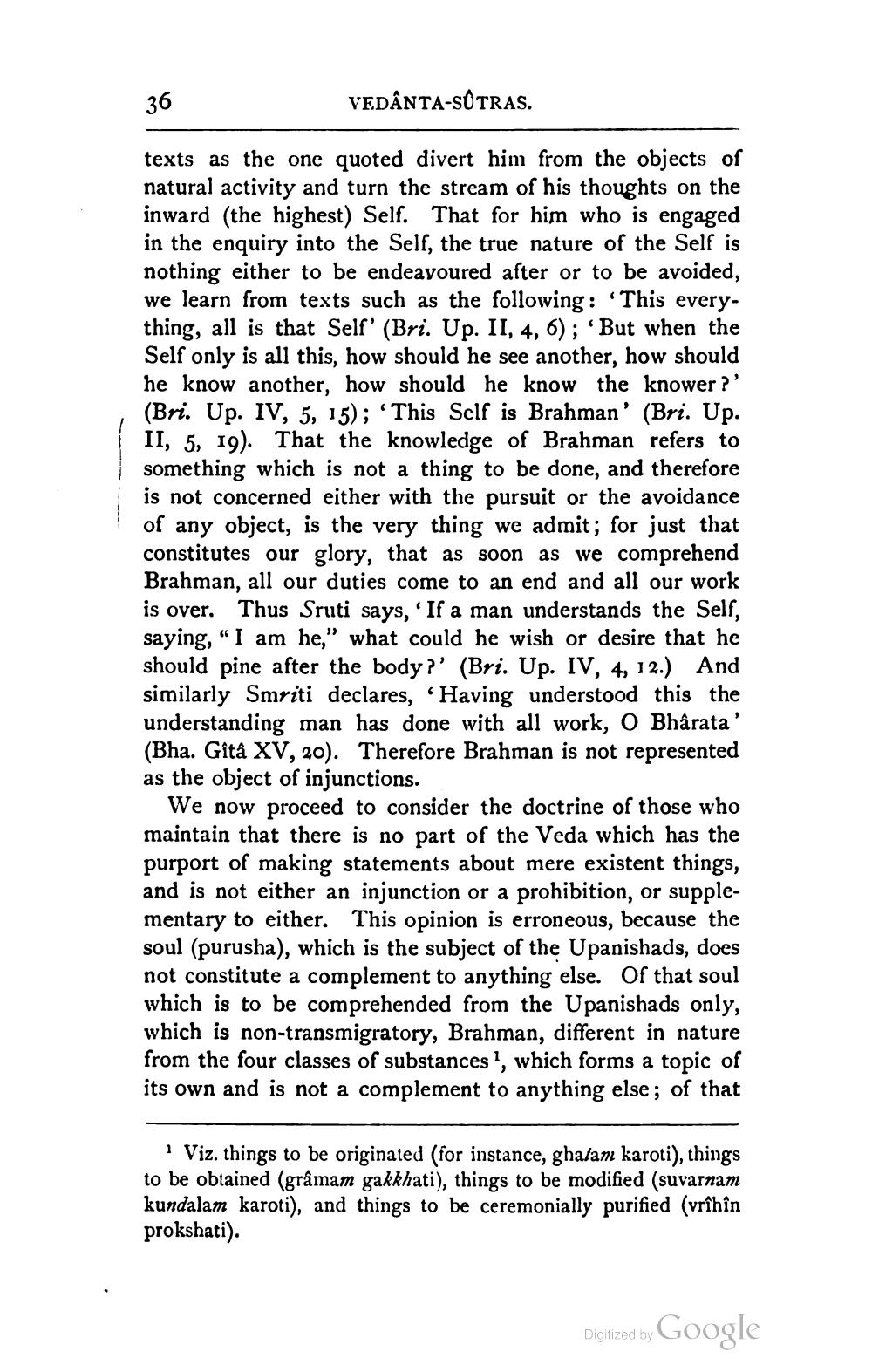________________
36
VEDÂNTA-SOTRAS.
texts as the one quoted divert him from the objects of natural activity and turn the stream of his thoughts on the inward (the highest) Self. That for him who is engaged in the enquiry into the Self, the true nature of the Self is nothing either to be endeavoured after or to be avoided, we learn from texts such as the following: “This everything, all is that Self' (Bri. Up. II, 4, 6); But when the Self only is all this, how should he see another, how should he know another, how should he know the knower ?' (Bri. Up. IV, 5, 15); 'This Self is Brahman' (Bri. Up. II, 5, 19). That the knowledge of Brahman refers to something which is not a thing to be done, and therefore is not concerned either with the pursuit or the avoidance of any object, is the very thing we admit; for just that constitutes our glory, that as soon as we comprehend Brahman, all our duties come to an end and all our work is over. Thus Sruti says, 'If a man understands the Self, saying, "I am he," what could he wish or desire that he should pine after the body?' (Bri. Up. IV, 4, 12.) And similarly Smriti declares, “Having understood this the understanding man has done with all work, O Bhârata' (Bha. Gîtâ XV, 20). Therefore Brahman is not represented as the object of injunctions.
We now proceed to consider the doctrine of those who maintain that there is no part of the Veda which has the purport of making statements about mere existent things, and is not either an injunction or a prohibition, or supplementary to either. This opinion is erroneous, because the soul (purusha), which is the subject of the Upanishads, does not constitute a complement to anything else. Of that soul which is to be comprehended from the Upanishads only, which is non-transmigratory, Brahman, different in nature from the four classes of substances, which forms a topic of its own and is not a complement to anything else; of that
Viz. things to be originated (for instance, ghalam karoti), things to be obtained (grâmam gakkhati), things to be modified (suvarnam kundalam karoti), and things to be ceremonially purified (vrîhîn prokshati).
Digitized by
Digized by Google




